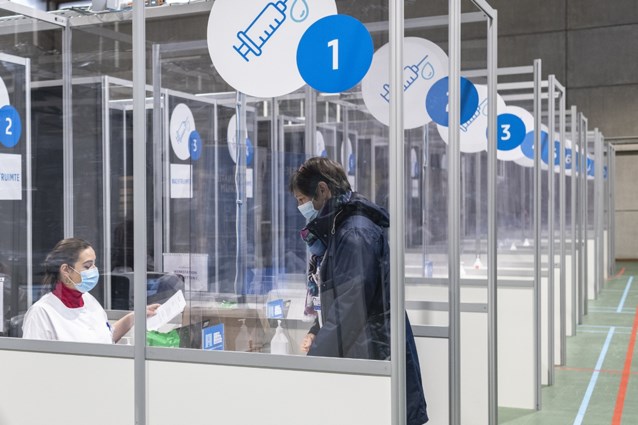The Flemish government is considering introducing a system with a "corona pass" to give people in Flanders back some freedom from 11 July, according to Flemish Welfare Minister Wouter Beke.
With such a "corona pass," people who have been vaccinated or who have recently tested negative for the coronavirus will be entitled to do more, such as go to the cinema or a restaurant, explained Beke.
"When everyone has had the chance to be vaccinated, we must dare to give back the freedom that we have taken away from people," he told VRT, putting forward the date of 11 July, when Flanders aims to give all adults in the Region their first dose, to introduce the system.
According to Beke, "the time has come to talk about it now."
The pass should not be reserved exclusively for those who have already been vaccinated, but could also mean freedom for those who were unable to get the shot for medical reasons, he said. "There are alternatives for that, they can present a negative test, for example."
Related News
- No Belgian 'Covid pass' before everyone is vaccinated, says Van Ranst
- 'Against discrimination laws': experts worried about Belgian 'corona pass'
- 'Can't wait for the sceptics to decide': Vervoort wants Belgian 'corona pass'
Additionally, introducing a "corona pass" would not come down to making vaccination mandatory, according to him, but it could be "an incentive and encouragement" for everyone to get vaccinated.
In Denmark, the “corona pass” system is already being used, and people can use it to show that they have either been fully vaccinated, have tested negative in the previous 72 hours, or have tested positive two to 12 weeks earlier, indicating immunity to the virus.
With it, Danish residents can use various services, such as hairdressers, massage parlours, beauty salons, tattoo studios, tanning salons and driving schools.
On Sunday, Brussels Minister-President Rudi Vervoort already stated that he is in favour of introducing a similar system in Belgium, but also stressed that the entire population should have had the chance to get vaccinated first.
However, some experts already spoke out against the possibility, saying that it would be in violation of the country's anti-discrimination laws, as the vaccination campaign does not reach certain population groups.
“For example, there is a mental gap, a digital gap, or people have certain religious or philosophical beliefs about vaccines," said discrimination expert Dominique De Meyst.
According to her, there are "also less drastic ways to give people their freedom back, but without discriminating against certain groups.”
In an opinion issued on Monday, Unia (the Centre for Equal Opportunities and Opposition to Racism) also stated that it would be “problematic” if these groups would be excluded from essential services such as housing, health care, banking and insurance.
According to virologist and interfederal Covid-19 spokesperson Steven Van Gucht, an opinion is currently being drafted on whether or not to introduce certain relaxations for people who have been vaccinated by a special GEMS working group, which includes lawyers, ethicists and sociologists.
“This opinion will soon be forwarded to the ministers and policymakers who will look into it and make a decision,” he said during a press conference on Tuesday.
“At the moment, about one-third of the adult population in Belgium has received a first vaccine dose, so the majority of people are not yet protected,” Van Gucht said, stressing that this is “definitely” something to take into account when creating rules for vaccinated people only.
“If and when the situation improves in the near future, it will be possible to relax the rules for everyone anyway,” he said. “And maybe a little extra for the vaccinated, but that advice will still be published.”

